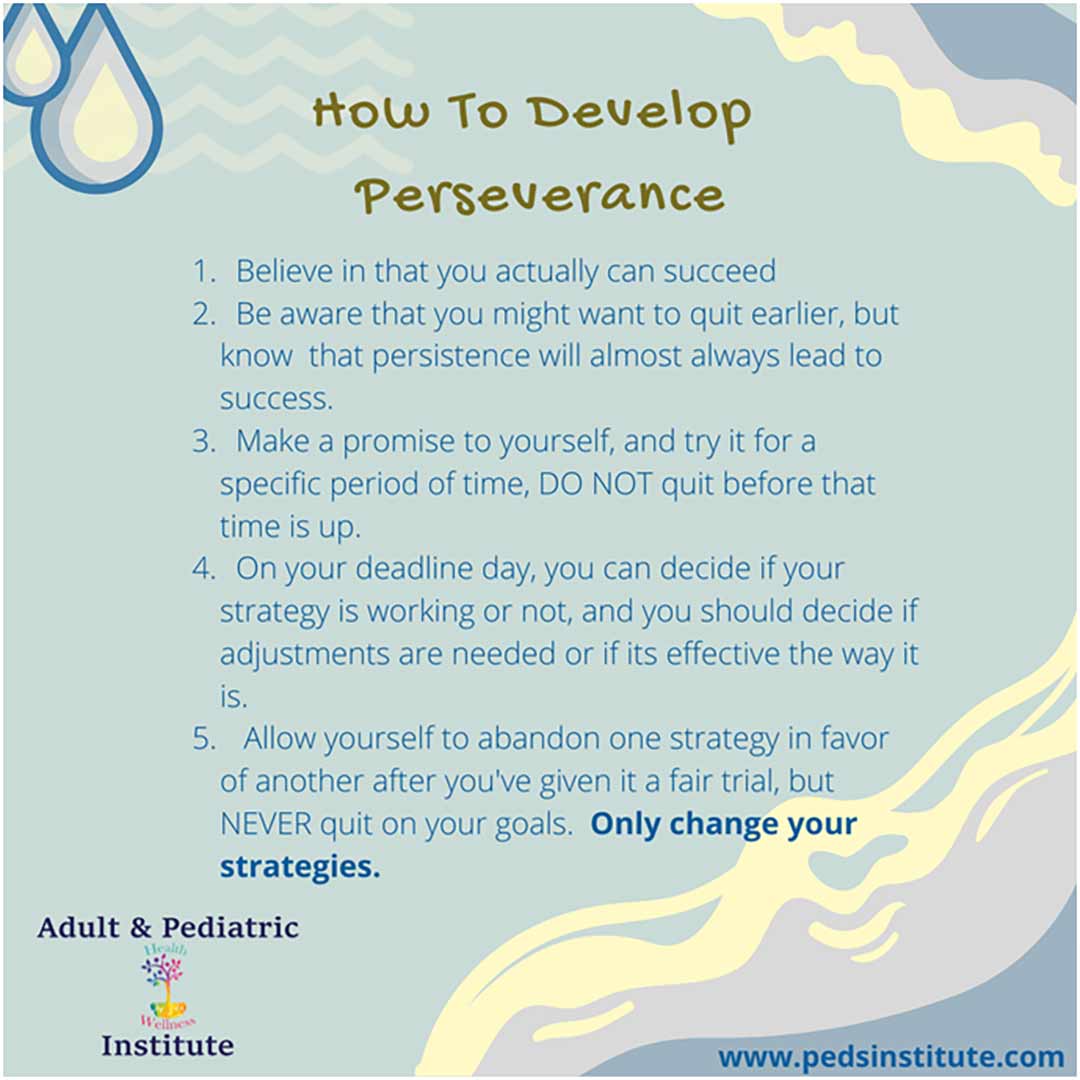
How to Develop Perseverance
Introduction:
Perseverance—the ability to keep pushing forward despite obstacles or setbacks—is one of the most valuable qualities anyone can cultivate. Whether you’re a parent helping your child overcome challenges or an adult striving toward personal goals, perseverance is the heart of success. At Peds Institute, we believe that with persistence, triumph in your endeavors is almost guaranteed. So, how do we nurture this master skill in ourselves and our loved ones? Let’s explore actionable steps to develop perseverance and ensure it becomes a lifelong strength.
What is Perseverance and Why Does It Matter?
Perseverance is about continuing to pursue something even when the going gets tough. It’s the grit that keeps us moving forward, whether we’re tackling a tough school project, mastering a new skill, or navigating life’s unexpected hurdles. For children, teens, and adults alike, this quality lays the foundation for emotional resilience, academic achievement, and personal growth. Research shows that perseverance often outshines talent alone—because it’s the willingness to keep trying that turns dreams into realities.
Find Joy in the Journey
Perseverance thrives when paired with passion. Be persistent in what you love! When you—or your child—pursue goals that spark joy, the effort feels less like a chore and more like a privilege. A teen who loves art might stick with a challenging drawing longer than a math problem. An adult passionate about fitness might push through workouts with enthusiasm. Tie your goals to what excites you, and perseverance becomes a natural extension of your happiness.
How Perseverance Benefits Kids and Adults
For Kids: It builds self-esteem, improves academic outcomes, and prepares them for life’s ups and downs.
For Adults: It enhances career success, strengthens mental health, and fosters a sense of purpose.
For Families: Teaching perseverance creates a supportive home where everyone thrives.
Tips to Encourage Perseverance at Home
Model It: Show your kids how you persist through challenges with a positive attitude.
Set Small Goals: Break big tasks into manageable steps to build confidence.
Celebrate Effort: Praise the process, not just the outcome, to reinforce persistence.
Be Patient: Growth takes time—support each other through the journey.
Conclusion:
Perseverance is a master skill that unlocks endless possibilities. By believing in ourselves, pushing past the urge to quit, making commitments, adapting strategies, and finding joy, we can cultivate this quality in kids and adults alike. At Peds Institute, we’re passionate about helping families develop resilience and achieve their goals. Start small, stay consistent, and watch how perseverance transforms your life into one of success and fulfillment.
How do you encourage perseverance in your family? Share your tips and comments in our social media! For personalized support or to explore our concierge psychiatry services, contact us today.
Plan ahead, stay positive, and make the most of your post-vacation routine! 🌟
